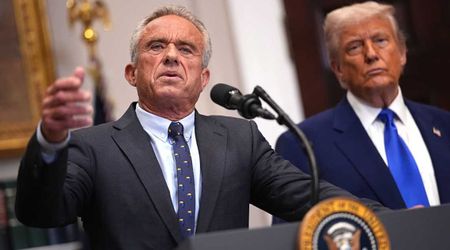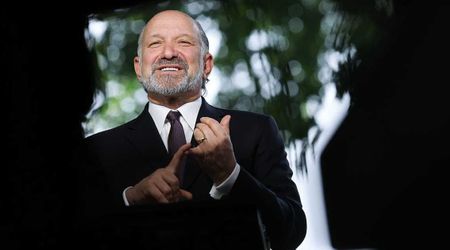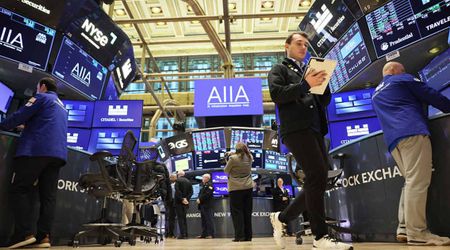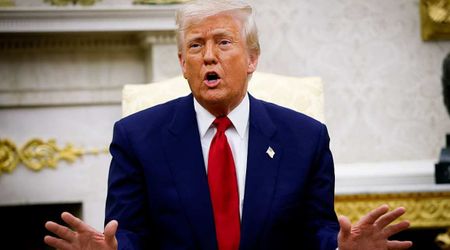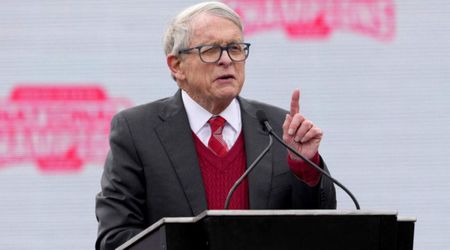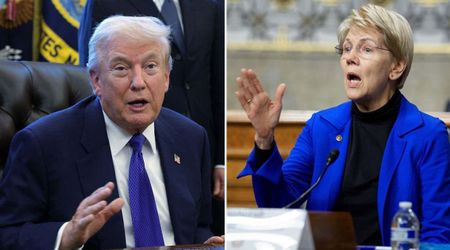With Hollywood Actors Joining the Writers in a Double Strike, Entertainment Takes a Back Seat

Finally, Hollywood actors have joined forces with writers to announce a strike, marking the first time in over 60 years that these two influential groups have taken joint action. The Screen Actors Guild-American Federation of Television and Radio Artists (SAG-AFTRA) officially declared the strike, citing concerns over wages, AI technology, and the fair distribution of profits in the digital streaming era, reports The Guardian. This development further escalates the ongoing conflict between Hollywood workers and studio executives, with potentially significant consequences for the entertainment industry and the broader Los Angeles economy.
View this post on Instagram
Standing up for fairness and recognition
The strike has garnered support from both SAG-AFTRA's 160,000 members and the 11,500 members of the Writers Guild of America (WGA). Fran Drescher, the president of SAG-AFTRA expressed the need to take a firm stance against the changing business model and the detrimental impact it has on workers. The primary demands include increased base pay and residuals, protection against job displacement by Artificial Intelligence, and the assurance that their digital likeness will not be exploited without consent.
View this post on Instagram
Disrupting Hollywood productions and beyond
The simultaneous strikes by actors and writers have caused significant disruptions in the film and television industry, bringing Hollywood productions to a halt. The effects will reverberate throughout the broader Los Angeles economy, with press junkets for upcoming movies likely being canceled and prestigious events like the Emmy Awards facing postponement. This labor dispute will undoubtedly have a profound impact on workers across Los Angeles, who will face the challenge of surviving without wages for an extended period.
Studio response and negotiations
The Alliance of Motion Picture and Television Producers (AMPTP), which represents major studios and streaming platforms like Amazon, Apple, Disney, NBCUniversal, Netflix, Paramount, Sony, and Warner Bros Discovery, expressed disappointment at SAG-AFTRA's decision to strike. The AMPTP emphasized its willingness to negotiate and its commitment to reaching a fair agreement. However, tensions have been mounting and negotiations between SAG-AFTRA and the studios failed to produce a resolution by the designated deadline.

The human toll and financial losses
The strike's economic impact extends beyond the studio lots, affecting workers in various roles throughout the industry. The loss of wages for thousands of individuals will undoubtedly create financial hardship for those who rely on the industry for their livelihoods. The current healthcare system requires a minimum annual income of $26,000 for coverage, and many workers depend on residuals to meet this threshold. The mounting financial pressure faced by union members underscores the urgency for a fair resolution that acknowledges the contributions of all industry workers.
The stars speak out
Prominent Hollywood stars have also lent their voices to support the strike and highlight the challenges faced by their fellow union members. Matt Damon emphasized the need to allocate profits in a manner that supports workers on the margins, particularly given the substantial revenue generated through streaming platforms. The backing of high-profile actors like Damon as well as a letter from Hollywood A-listers Meryl Streep and Jennifer Lawrence demonstrates the solidarity among performers and the recognition of the significance of this contract negotiation.
As Sag-Aftra goes on strike, its president condemned a media report that studio executives planned to “bleed out” writers.
— Lois Beckett (@loisbeckett) July 13, 2023
“You know what? Eventually, the people break down the gates of Versailles. And then it’s over. We’re at that moment right now,” @frandrescher said. pic.twitter.com/jskY3BRE98
The road ahead and potential losses
The strike's consequences extend beyond the immediate disruptions to Hollywood productions. Publicity efforts for highly anticipated films will be impacted, with premieres and promotional events facing restrictions due to the absence of striking stars. Additionally, industry publications suggest that the Emmy Awards may face delays until late autumn or even next year. San Diego Comic-Con, a major event on the entertainment calendar, will also be affected.
The financial losses resulting from the strike are difficult to quantify precisely. However, the suspension of film and television productions, alongside the cancellation of promotional events and premieres, will have a substantial economic impact. The negative ripple effects will be felt not only by industry professionals but also by peripheral businesses and workers who rely on the entertainment industry for income.






